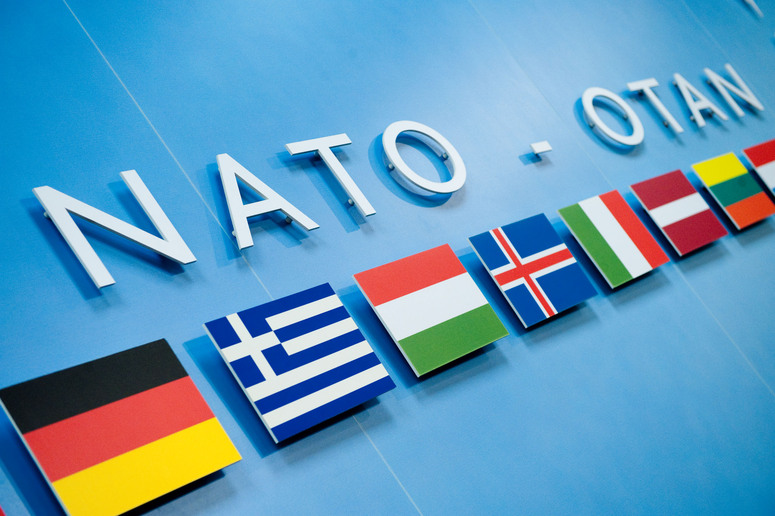NATO’s purpose
NATO’s essential and enduring purpose is to safeguard the freedom and security of all its members. It does this through political and military means, ensuring the collective defence of all Allies, against all threats, from all directions.

NATO’s goal: peace and security in Europe and North America
NATO strives to secure a lasting peace in Europe and North America, based on its member countries’ common values of individual liberty, democracy, human rights and the rule of law. These shared values unite a diverse group of Allies on both sides of the Atlantic. NATO embodies the transatlantic bond between them, whereby the security of Allies in Europe and North America is inextricably linked.
The principle of collective defence – meaning that an attack against one Ally is considered as an attack against all Allies – is at the heart of NATO. This means that no single member country is forced to rely solely on its national capabilities to meet its essential national security objectives. The resulting sense of shared security among NATO members contributes to stability in the Euro-Atlantic area and creates a spirit of solidarity and cohesion within the Alliance.
Ensuring stability at home by engaging outside of NATO
The outbreak of crises and conflicts beyond Allied borders can jeopardise the national security of NATO member countries – a more dangerous and unpredictable world makes things less safe for everyone. As a result, the Alliance also contributes to peace and stability through crisis prevention and management, and through partnerships with other organisations and countries across the globe. Essentially, NATO not only helps to defend the territory of its members, but also engages – where possible and when necessary – to project its values further afield, prevent and manage crises, stabilise post-conflict situations, and support reconstruction.
Making collective decisions through consultation and consensus
As an intergovernmental organisation, NATO provides a unique forum where members can consult on any issue and take decisions on political and military matters affecting their security. All NATO decisions are made by consensus, meaning that all NATO member countries have reached agreement after discussion and consultation.
Setting NATO’s strategic direction
NATO’s fundamental security tasks are laid down in the North Atlantic Treaty (also known as the Washington Treaty), which founded the Alliance in 1949. They are sufficiently general to withstand the test of time and are translated into more detail in the Organization’s strategic concepts.
Strategic concepts are the authoritative statement of the Alliance’s objectives: they provide the highest level of guidance on the political and military means that will be used to achieve these goals and remain the basis for the implementation of Alliance policy as a whole.
Adapting to new security challenges as the world changes
During the Cold War, NATO focused on collective defence and the protection of its members from potential threats emanating from the Soviet Union. With the collapse of the Soviet Union and the rise of non-state actors affecting international security, many new security threats have emerged, such as terrorism. Moreover, Russia’s war of aggression against Ukraine – including its illegal annexation of Crimea in 2014 and its full-scale invasion in 2022 – have radically altered the security environment.
NATO is countering this vast array of threats by strengthening its deterrence and defence as the backbone of its commitment to collective defence; helping to prevent and manage crisis situations; and encouraging cooperative security, as outlined in the 2022 Strategic Concept.
